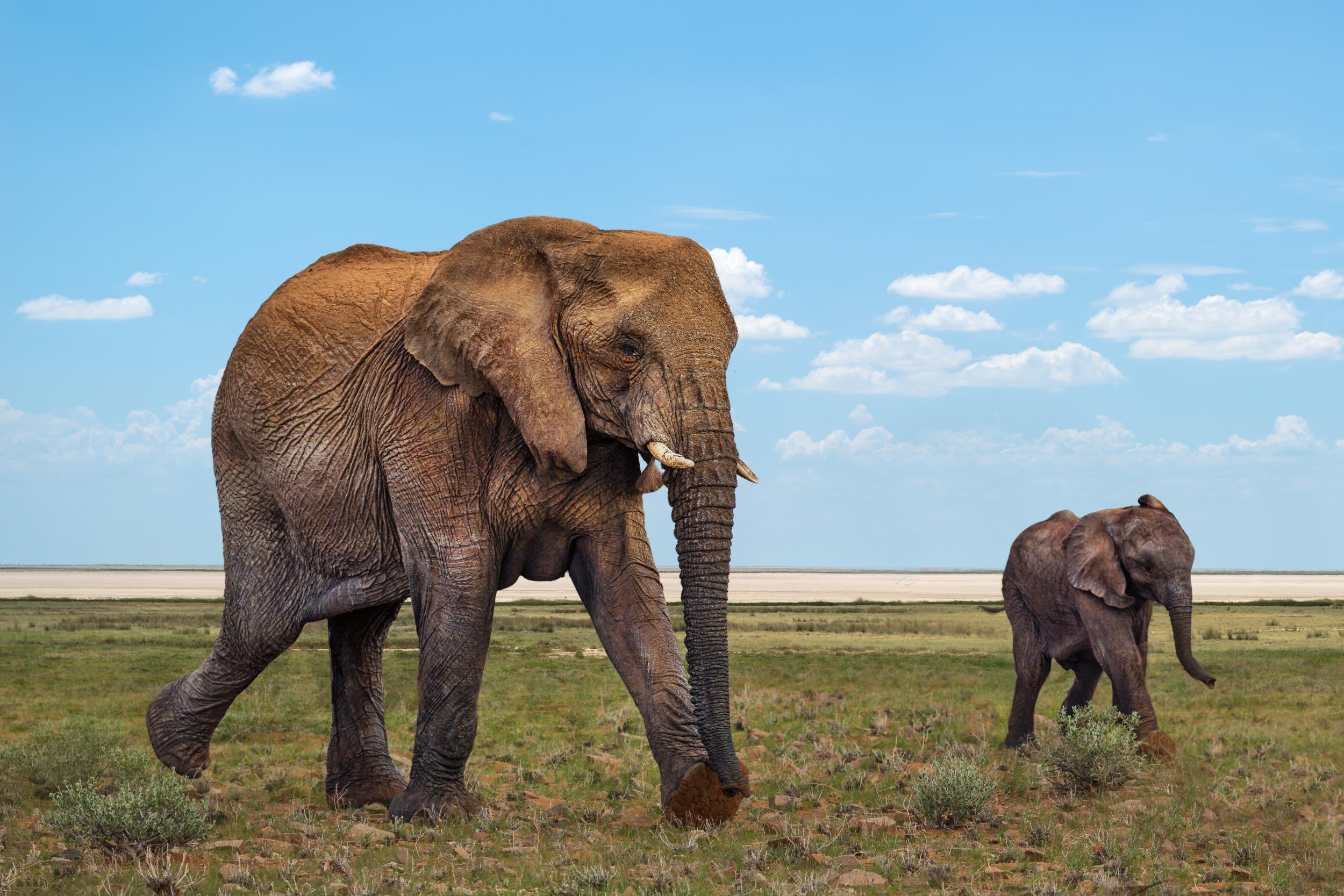Namibia will cull 83 elephants and 30 hippos to distribute meat to people hit by drought
One hundred and fifty-seven animals have already been hunted by professional hunters

Your support helps us to tell the story
From reproductive rights to climate change to Big Tech, The Independent is on the ground when the story is developing. Whether it's investigating the financials of Elon Musk's pro-Trump PAC or producing our latest documentary, 'The A Word', which shines a light on the American women fighting for reproductive rights, we know how important it is to parse out the facts from the messaging.
At such a critical moment in US history, we need reporters on the ground. Your donation allows us to keep sending journalists to speak to both sides of the story.
The Independent is trusted by Americans across the entire political spectrum. And unlike many other quality news outlets, we choose not to lock Americans out of our reporting and analysis with paywalls. We believe quality journalism should be available to everyone, paid for by those who can afford it.
Your support makes all the difference.Namibia plans to cull 723 wild animals, including 83 elephants, and to distribute the meat to people struggling to feed themselves because of a severe drought across southern Africa, the environment ministry said.
The cull will take place in parks and communal areas where authorities believe animal numbers exceed available grazing land and water supplies, it said in a statement issued on Monday.
The country also plans to cull 30 hippos and 60 buffalo, as well as 50 impala, 100 blue wildebeest, 300 zebra and 100 eland.
Southern Africa is facing its worst drought in decades, with Namibia having exhausted 84% of its food reserves last month, according to the United Nations. Nearly half of Namibia’s population is expected to experience high levels of food insecurity in the coming months.
With such a severe drought, human-wildlife conflicts are expected to increase if the authorities do not intervene, the environment ministry said.
“To this effect, 83 elephants from identified conflict areas will be culled, (and) meat will be allocated to the drought relief programme,” it said.
One hundred and fifty-seven animals have already been hunted by professional hunters and companies contracted by the government, yielding more than 56,800 kilograms of meat.
“This exercise in necessary and is in line with our constitutional mandate where our natural resources are used for the benefit of Namibian citizens,” the environment ministry said.

More than 200,000 elephants are estimated to live in a conservation area spread over five southern African countries - Zimbabwe, Zambia, Botswana, Angola and Namibia - making the region home to one of the largest elephant populations worldwide.
Hundreds of elephants died in Botswana and Zimbabwe last year because of drought.
Earlier this year Botswana threatened to send 20,000 elephants to Germany, escalating an ongoing row over the import of hunting trophies.
The dispute began when Germany’s environment ministry, citing concerns about poaching, suggested imposing stricter limits on the import of hunting trophies. Germany is the EU’s chief importer of African elephant trophies, according to a 2021 report by the Humane Society International.
Botswana’s president Mokgweetsi Masisi told Bild that further restrictions on hunting would impoverish the African nation due to an explosion in the number of elephants.
Germans should “live together with the animals, in the way you are trying to tell us to”, he told the German daily.
“This is not a joke,” Mr Masisi added.
Join our commenting forum
Join thought-provoking conversations, follow other Independent readers and see their replies
Comments